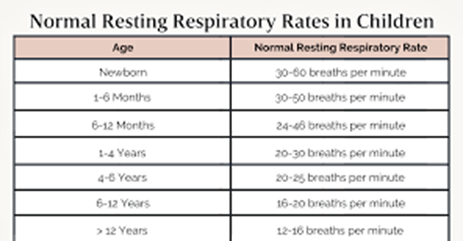A nurse in the newborn nursery is caring for a group of newborns. Which of the following newborns requires immediate intervention?
A newborn who is 18 hr post-delivery and has acrocyanosis
A newborn who is 24-hr post-delivery and has not passed meconium
A newborn who is 24 hr post-delivery and has persistent tachycardia with a heart rate of 180 bpm
A newborn who is 24 hr post-delivery and has not voided
The Correct Answer is C
A. Acrocyanosis is a normal finding in newborns and does not require immediate intervention.
B. Not passing meconium within the first 24 hours is not uncommon and may be normal.
C. Persistent tachycardia in a newborn, especially with a heart rate of 180 bpm, requires immediate intervention as it may indicate a cardiac or other medical issue.
D. Not voiding within the first 24 hours may be normal, but it should be monitored.

Nursing Test Bank
Naxlex Comprehensive Predictor Exams
Related Questions
Correct Answer is A
Explanation
A. Vitamin K is a fat-soluble vitamin that is essential for blood clotting. Newborns have low levels of vitamin K because they do not have the intestinal bacteria that produce it. Therefore, they are given an injection of vitamin K shortly after birth to prevent bleeding disorders.
B. Vitamin K is not crucial for the breakdown of bilirubin.
C. Vitamin K primarily plays a role in blood clotting, not the production of white blood cells.
D. Vitamin K is not directly involved in the production of red blood cells.
Correct Answer is D
Explanation
A. A respiratory rate of 110/min is too high for a newborn and may indicate respiratory distress.
B. A respiratory rate of 100/min is too high for a newborn and may indicate respiratory distress.
C. A respiratory rate of 22/min is too low for a newborn.
D. A normal respiratory rate for a newborn is between 40 and 60 breaths per minute.

Whether you are a student looking to ace your exams or a practicing nurse seeking to enhance your expertise , our nursing education contents will empower you with the confidence and competence to make a difference in the lives of patients and become a respected leader in the healthcare field.
Visit Naxlex, invest in your future and unlock endless possibilities with our unparalleled nursing education contents today
Report Wrong Answer on the Current Question
Do you disagree with the answer? If yes, what is your expected answer? Explain.
Kindly be descriptive with the issue you are facing.
